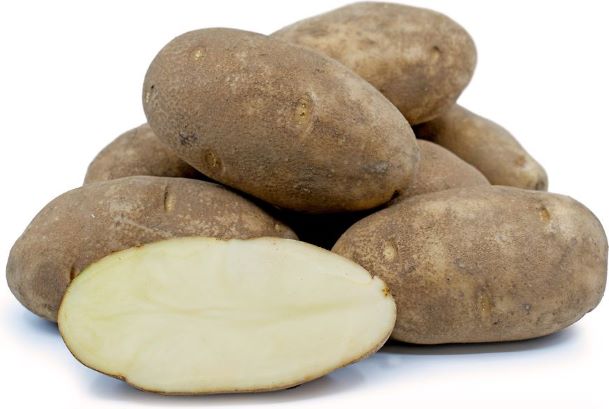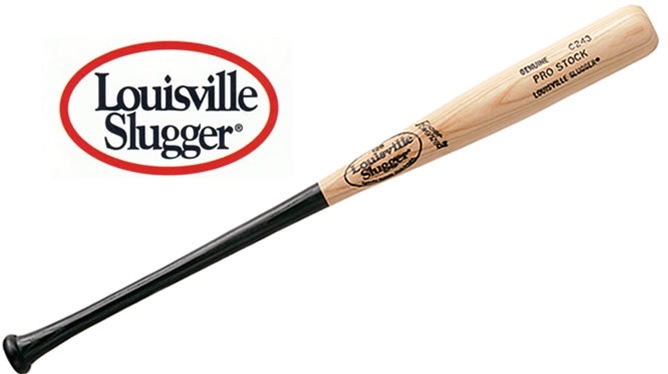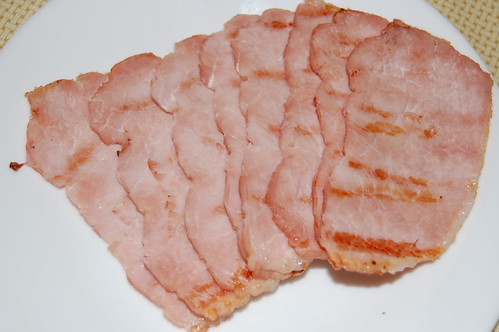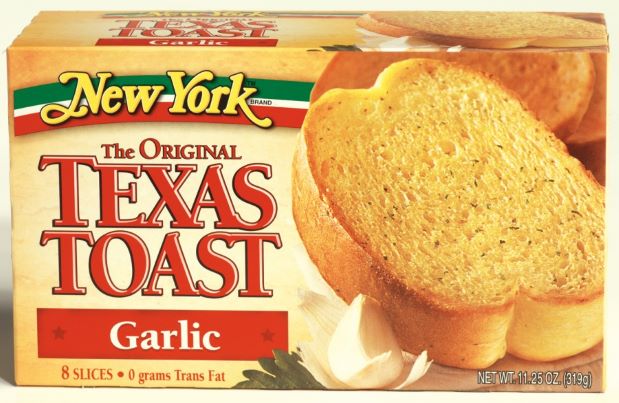Geographically Challenged Products
Yesterday, my wife served us New York brand Texas Toast from Ohio.
When I asked my son if he wanted a slice of Texas Toast, he said he didn’t want to eat anything from Texas. He holds the entire state accountable for George W.
When I told him that this was New York brand Texas Toast, he said he would love a slice.
Finally, when I told him that the New York brand Texas Toast was baked in Ohio, he did a 180 and refused a slice. He is, after all, a life-long wolverine.
He eventually relented and took a slice. This bread is actually quite good.
The frozen bread carton included a good-natured explanation of the geographic confusion. The founders of the company originally owned a bakery in New York. In the 1920s, they moved the bakery to Ohio, but kept the “New York” brand name. One of its products was oversize garlic toast, and the company adopted “Texas Toast” as the product name.
This made me wonder if there were other geographically challenged products on the market. In fact, a found a few.

For example, Philadelphia Cream Cheese is not made in Philadelphia. In fact, the cream cheese has nothing whatsoever to do with Philadelphia. Or Pennsylvania for that matter. The cream cheese came from Chester, New York in the 1970s. The dairy used cream, as well as whole milk, to make it richer than ordinary cheese. The cream cheese was marketed as “Philadelphia” because other quality food products were associated with Philadelphia. Food was often referred to as “Philadelphia quality” at the time. Evidently “Chester Cream Cheese” wouldn’t have carried the same notion of quality.

I’m not sure that there is, technically, an Idaho potato, other than a potato that happens to be grown in Idaho. The Idaho Potato Commission allows growers to put the Grown in Idaho seal on potatoes. Since this is a state agency, they won’t let the seal be used on potatoes grown in, say, Nebraska. But the Idaho potato is not a type of potato. What we normally think of as an Idaho potato is a Russet Burbank potato. The Burbank potato was developed by Luther Burbank in Massachusetts in the 1870s. He took his seedling west and it adapted well. A mutated form of the Burbank was developed in Colorado and became known as the Russet Burbank.
Ironically, they don’t eat much Idaho potatoes in Idaho. Most of Idaho’s potatoes are shipped elsewhere for processing and packaging. The biggest customers are McDonald’s (for French fries) and Ore-Ida (which is a division of Heinz in Pittsburgh, Pennsylvania). The potatoes actually eaten in Idaho are grown in Washington, California or Maine. My source for this is a humorous article entitled Six Things You Don’t Know About Idaho. I will vouch for the humorousness of the article, but not the accuracy.

Speaking of French fries, we all know that fries have nothing whatsoever to do with France. Except that they do. Well, either France or Belgium.
You can read the entire Secret History of French Fries if you like. It actually traces the history of the potato. Someone, either in France or Belgium, got the idea a few hundred years ago of putting a potato into boiling fat, and the fries were born. Fries became popular in mid-19th Century Europe. World War I soldiers brought the idea, or at least the taste, to the U.S. They also brought with them the name “French fries”. For whatever reason, the name “Belgian fries” never caught on.

The Belgians got credit for the Belgian waffle. This was the creation of a Belgian restauranteur at the Brussels World Fair in 1960. I got this information on a web page entitled National Waffle Week. This page provides the history of the waffle, but never does state which of the 52 weeks is National Waffle Week.
(I was almost convinced before, but now I am thoroughly convinced. If there is a web page for National Waffle Week then there is a web page for everything. 2019 update: I couldn’t find the National Waffle Week website, which I had found and linked in 2005. I did, however, discover that National Waffle Week is coming – September 1st to 7th, 2019.)
Incidentally, a yahoo search of “Belgian waffle” took me to the Belgian Waffle & Omelet Inn located in, of all places, Midvale, Utah.
Kentucky bluegrass is native in most of Europe, northern Asia and the mountains of Algeria and Morocco. It is not native to Kentucky, nor anywhere else in North America. Apparently the early colonists brought seed of Kentucky bluegrass to this country in mixtures with other grasses. They must have dropped some of it in Kentucky on their way west.

I don’t mean to pick on Kentucky, but one of its other claims to fame is the Louisville Slugger The Louisville Slugger is synonymous with baseball and has been used by major leaguers for over 100 years. The problem is that the bats are not made in Louisville. They’re not even made in Kentucky. Louisville Slugger’s manufacturing facility is in Jeffersonville, Indiana, across the river from Louisville.

Did you know that the Real Canadian Bacon Company is located in Troy, Michigan? Michigan, by the way, is in the United States and not Canada. The Real Canadian Bacon Company claims, though, that it gets all of its bacon from Canada.
I’m sure that makes the Canadian pigs happy!
